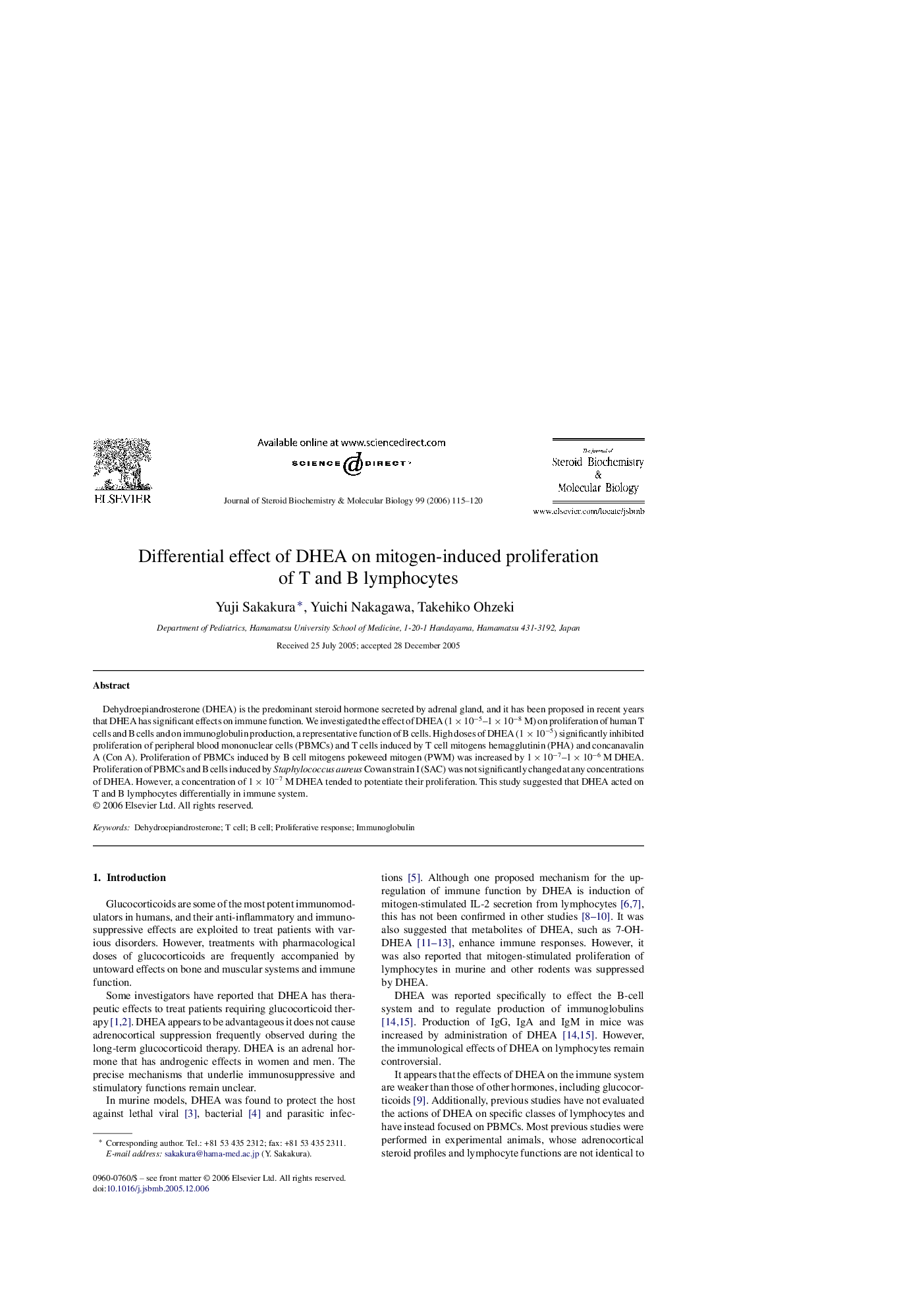| Article ID | Journal | Published Year | Pages | File Type |
|---|---|---|---|---|
| 1992638 | The Journal of Steroid Biochemistry and Molecular Biology | 2006 | 6 Pages |
Dehydroepiandrosterone (DHEA) is the predominant steroid hormone secreted by adrenal gland, and it has been proposed in recent years that DHEA has significant effects on immune function. We investigated the effect of DHEA (1 × 10−5–1 × 10−8 M) on proliferation of human T cells and B cells and on immunoglobulin production, a representative function of B cells. High doses of DHEA (1 × 10−5) significantly inhibited proliferation of peripheral blood mononuclear cells (PBMCs) and T cells induced by T cell mitogens hemagglutinin (PHA) and concanavalin A (Con A). Proliferation of PBMCs induced by B cell mitogens pokeweed mitogen (PWM) was increased by 1 × 10−7–1 × 10−6 M DHEA. Proliferation of PBMCs and B cells induced by Staphylococcus aureus Cowan strain I (SAC) was not significantly changed at any concentrations of DHEA. However, a concentration of 1 × 10−7 M DHEA tended to potentiate their proliferation. This study suggested that DHEA acted on T and B lymphocytes differentially in immune system.
